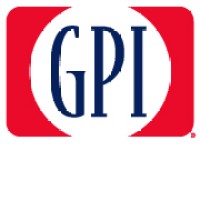Gaming Partners International Corporation
Last Update: 2025-11-24
Gaming Partners International (GPI), a full-service supplier of gaming furniture and equipment for casinos worldwide, was created from joining three of the world’s leading gaming suppliers, Bourgogne et Grasset (BG), Paul-Son Gaming Supplies, and The Bud Jones Company. Gaming Partners International Corporation was formed in 2002 through a reverse merger between Paul-Son Gaming and B&G. In 2014, GPI acquired Gemaco Inc. further expanding the depth of its product offerings and market reach. In 2015, GPI purchased the gaming currency portfolio and manufacturing equipment of Dolphin Products Limited and assumed the manufacture and sale of Dolphin branded gaming chips and plaques. Featuring popular brands such as Paulson®, B&G®, Bud Jones®, Gemaco® and Dolphin®, GPI high-quality table game products range from casino currency with proprietary design and security features, to innovative new ideas in gaming table manufacture, to products developed specifically for the cost-conscious casino. With a sales force that spans the globe and manufacturing plants in the United States, Mexico, Asia and France, GPI is equipped to serve casino customers in all major gaming regions including North and South America, Asia, Europe, Australia and South Africa. Our business activities include the manufacture and supply of gaming chips, plaques and jetons, table layouts, playing cards, dice, gaming furniture, roulette wheels and miscellaneous table accessories such as chip trays, drop boxes and dealing shoes, which are used in conjunction with casino table games such as blackjack, poker, baccarat, craps, and roulette. We are a leading provider of RFID currency, RFID products and RFID gaming solutions.
NAICS: 7132
NAICS Definition: Gambling Industries
Employees: 132
Subsidiaries: 0







